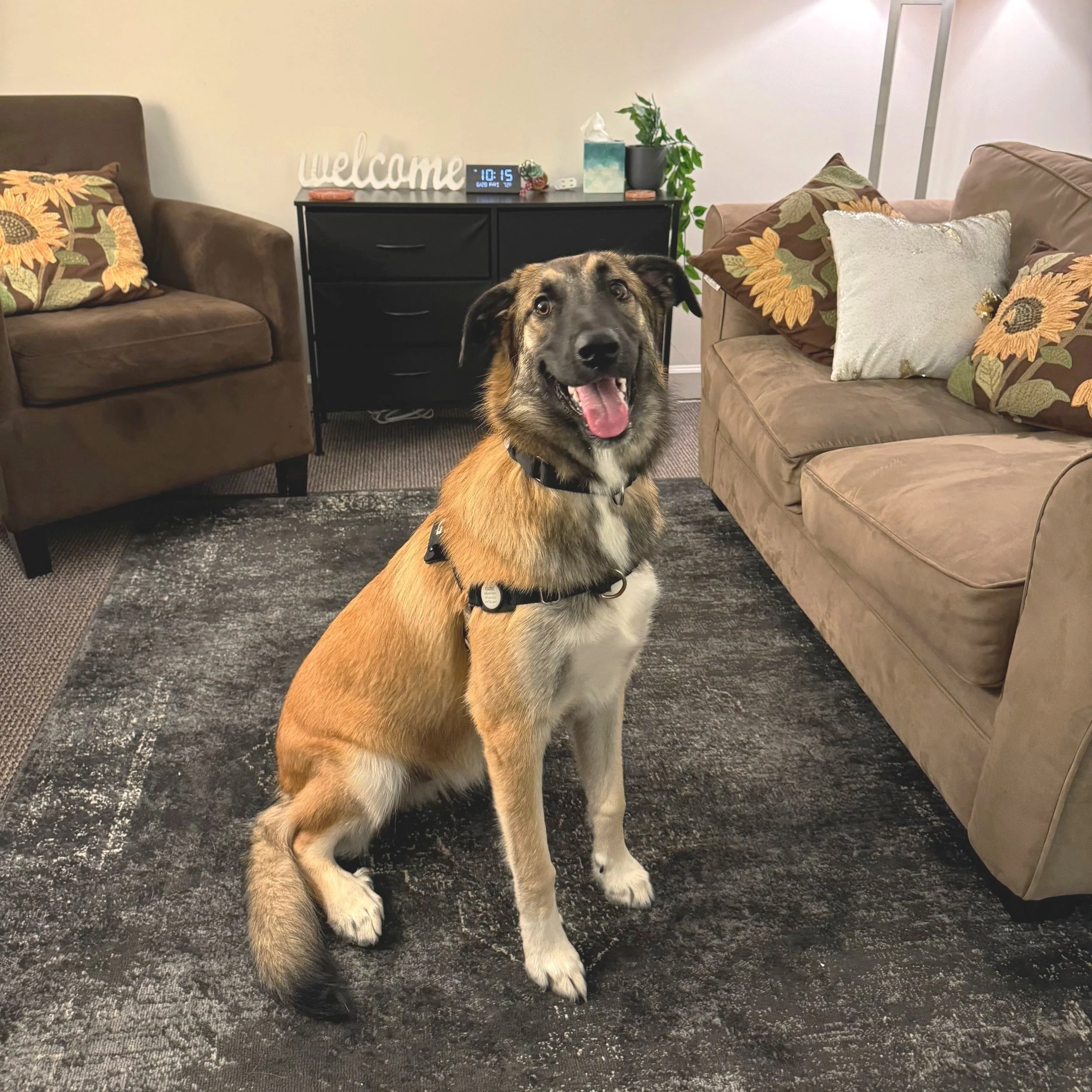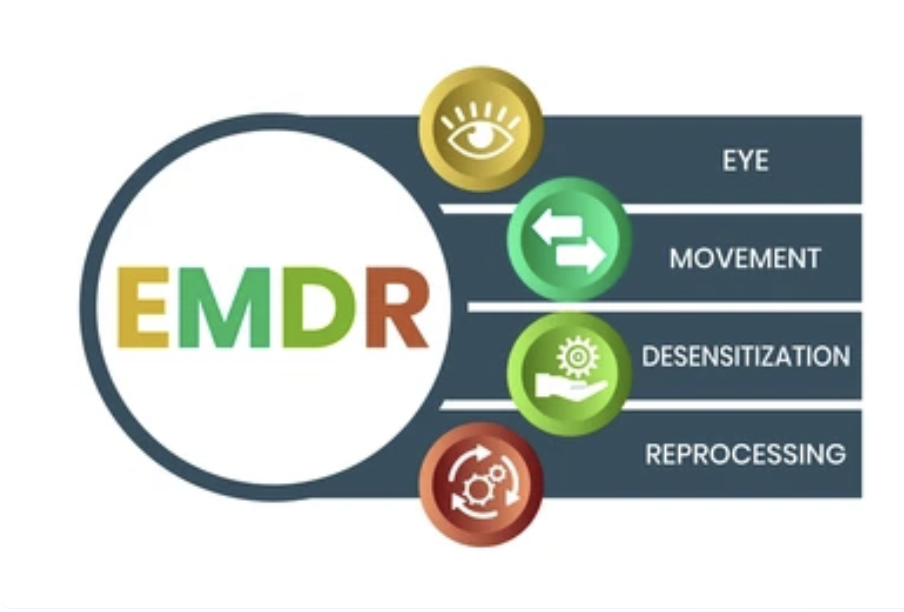
COUNSELING
SERVICES
-
One-on-one counseling allows individuals to explore their feelings, relationships, beliefs, and behaviors. This also allows the individual to work through challenging or influential memories, identify aspects of their lives that they would like to change, better understand themselves and others, set personal goals, and work toward desired change with a counselor providing unconditional and unbiased support.
-
Family therapy can help family members improve communication and resolve conflicts. It may include all family members or just those willing to participate. Your specific family therapy experience will be tailored based on your family's situation and goals. Family therapy sessions can teach you skills to deepen family connections and get through stressful times, even outside of and after therapy is completed.
*Please note we do not currently provide reunification/ court ordered family therapy.
-
Couples therapy focuses on improving relationship satisfaction and conflict resolution between couples. Whether through in-person or online couples therapy, the ultimate goal for a counselor is to help build a healthy relationship and solve any possible issues. We are LGBTIAQ+ allied, kink allied, and sex-positive. We are proudly trained and using Emotionally Focused Therapy (EFT) with our couples.
-
Telehealth (virtual therapy) is a way of accessing your treatment from the comfort of your home or private space.
Whether you are home-bound due to social distancing, illness, limited mobility, lack of transportation, prefer the conveniences of Telehealth, or because you find it difficult to be out and about, Telehealth could be right for you.
-
We are happy to offer in-person counseling at our office in Frederick, Maryland. Sessions that take place in a therapist's office can provide a space away from your everyday life (and your computer screen). A location that feels neutral can increase your comfort when sharing private information.
-
We currently offer individual clinical supervision for Licensed Graduate Professional Counselors (LGPC). We may also offer group supervision for LGPCs in MD for specified time periods. Please check below to see if we have any available groups at this time.
In Maryland, Licensed Graduate Professional Counselors are required to obtain 100 hours of direct supervision time with a licensed supervisor approved by the Board. These must be post Master’s degree hours.
As a practice who has a therapist that is a Maryland approved clinical board approved supervisor, we can provide you with the necessary individual direct supervision required for your upcoming LCPC licensure.
-
Are you a professional therapist or counselor (LCPC, LCSW-C, or LCMFT) seeking clinical or professional consultation?
Clinical case consultation is a supportive and interactive relationship between a licensed clinical case consultant and the mental health practitioner. The consultant’s purpose is to provide input regarding the practitioner’s cases, as well as the practitioner’s professional growth and development. We currently provide clinical case consultation in individual and group formats.
-
CBT is an evidenced based treatment that usually involves efforts to change thinking patterns and behavioral patterns that are faulty or unhelpful. These strategies might include:
-Learning to recognize one’s distortions in thinking that are creating problems, and then to reevaluate them in light of reality.
-Gaining a better understanding of the behavior and motivation of others.
-Using problem-solving skills to cope with difficult situations.
-Learning to develop a greater sense of confidence in one’s own abilities.
-Facing one’s fears instead of avoiding them.
-Using role playing to prepare for potentially problematic interactions with others.
-Learning to calm one’s mind and relax one’s body.
-
Cognitive Processing Therapy (CPT) is a cognitive-behavioral therapy for Posttraumatic Stress Disorder(PTSD) and related conditions. PTSD can develop when an individual experiences a traumatic event such as physical and sexual abuse or assault, accidents, threats, military combat, or being a witness to violence or death. CPT focuses on the connections between thoughts, feelings, behavior and bodily sensations. CPT is an evidenced based therapy which means that it has been proven to be effective through rigorous scientific research.
CPT provides a way to understand why recovery from traumatic events is difficult and how symptoms of PTSD affect daily life. The focus is on identifying how traumatic experiences change thoughts and beliefs, and how thoughts influence current feelings and behaviors. An important part of the treatment is addressing ways of thinking that might keep individuals “stuck” and get in the way of recovery from symptoms of PTSD and other problems. CPT is available with therapist Ashley Saltzman, LCPC, NCC.
-
Trying to conceive, pregnancy, postpartum, and post-loss are critical time in the lives of parents. Therapy with a Perinatal Mental Health Certified provider (PMH-C), can help mom's and parents of all backgrounds have the support they deserve. Providing assessments, support, and delivering recommended interventions that supports mental health during these critical times can be life changing and life saving. Perinatal mental health counseling is available with therapist April Widdes, LCPC.
-
Animal Assisted Therapy
(AAT) can be implemented to greatly improve treatment outcomes for children, adolescents, adults, and geriatric client outcomes in a surprisingly broad range of areas, including:-Reduce stress and anxiety
- Lessen symptoms of depression and loneliness
-Enhance mindfulness and attachment
-Lessen the effects of trauma and PTSD
-Improve human-to-human social functioning
-Help people suffering from agoraphobia
-Increase feelings of acceptance and belonging
-And More!
Please note that the decision to include Riggins the therapy dog in counseling sessions is made at the therapist’s discretion, and may not be guaranteed at every session. If you are interested in exploring the possibility of incorporating Riggins on your therapeutic journey, please reach out to his therapist handler, Ashley Saltzman, directly.
-
Eye Movement Desensitization and Reprocessing (EMDR) Therapy is a structured therapy that encourages the patient to briefly focus on the trauma memory while simultaneously experiencing bilateral stimulation (typically eye movements), which is associated with a reduction in the vividness and emotion associated with the trauma memories. EMDR Therapy is available at By Your Side Counseling Services, LLC with therapist Brittany Tackett, LCPC, NCC.
-
During a Walk and Talk Therapy session, the therapist and the client walk side by side, while conducting the therapy session. Physical activity can help the client to relax and feel more comfortable, making it easier to open up and share their thoughts and feelings. We are fortunate for our office to be located nearby Baker Park in Frederick, MD!






